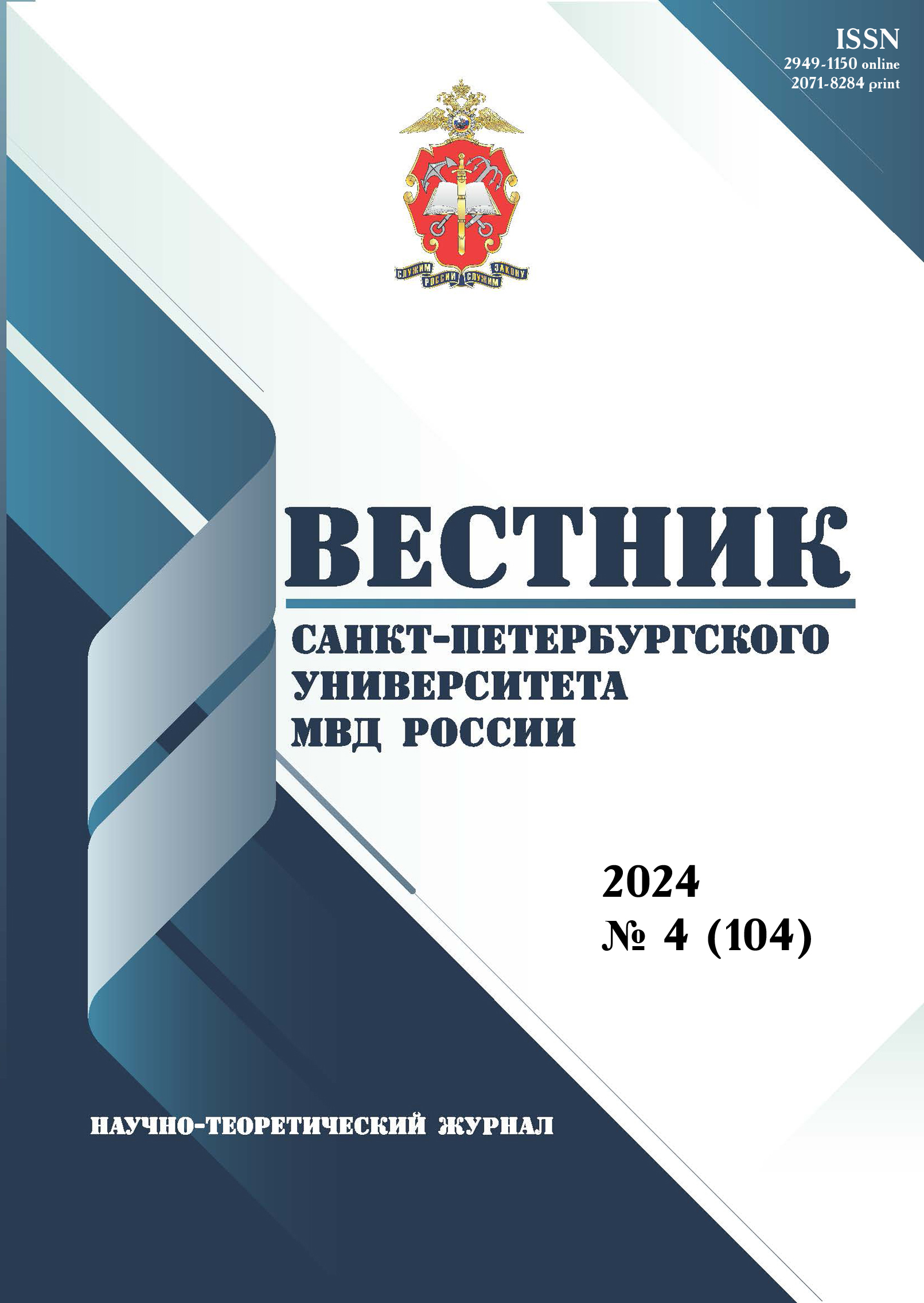Moscow, Moscow, Russian Federation
Moscow, Russian Federation
UDC 316.6
CSCSTI 15.81
Russian Classification of Professions by Education 37.05.02
Russian Library and Bibliographic Classification 88
Russian Trade and Bibliographic Classification 834
BISAC PSY021000 Industrial & Organizational Psychology
Introduction. The results of an empirical research of basic beliefs and attachment depending on the level of organisational support perceived by cadets are presented. The aim of the research is to identify the psychological features of level differences in the organisational support perceived by cadets. Research methods: the questionnaire of perceived organisational support; the Scale of basic beliefs; the methodology “Attachment Interview for Adults”; the methodology for diagnosing the level of professional burnout by V.V. Boyko. Comparative and multivariate discriminant analysis was used to identify significant differences of the studied phenomenon. Results. A high level of perceived organisational support is observed in the case of emotional involvement in service activities. In this case, cadets feel themselves as a part of the team and share its goals and values, demonstrate a high sense of duty before the team. Achievements of the organisation are considered equal to their own. The cadets' openness to take responsibility for failures and the desire to overcome them are complemented by sensitivity to justice, belief in kindness and the need for social contacts. The authors found that motivation for helping to achieve the organisation's goals prevails. It is manifested in the cadets' participation in various projects and activities aimed at developing the organisation and improving its efficiency.
perceived organisational support, cadet, professional burnout, organisational values, performance motive, social exchange
1. Matyushkina E. Ya., Kantemirova A. A. Professional'noe vygoranie i refleksiya specialistov pomogayuschih professiy // Konsul'tativnaya psihologiya i psihoterapiya. – 2019. – T. 27, № 2. – S. 50–68; https://doi.org/10.17759/cpp.2019270204.
2. Greenhalgh L., Rosenblatt Z. Job insecurity: Toward conceptual clarity // Academy of Management Review. – 1984. – Vol. 9, Is. 3. – P. 438–448; https://doi.org/10.5465/AMR.1984.4279673.
3. Ivanoff D., Podolskiy D. Workspace environment management: recent challenges and future trends for organizational psychology // Organizacionnaya psihologiya. – 2021. – Vol. 11, №. 4. – P. 190–202.
4. Aksenovskaya L. N. Ordernaya diagnostika organizacionnoy kul'tury : [monografiya]. – Saratov: Akademicheskiy proekt, 2007. – 303 s.
5. Kruglova N. Yu. Organizacionnaya kul'tura kak faktor pozitivnoy psihologii / Artpedagogika i artpsihologiya v vek innovaciy : sbornik statey po materialam V Mezhdunarodnoy nauchno-prakticheskoy konferencii v ramkah Vserossiyskogo festivalya nauki NAUKA 0+, g. Moskva, 4 oktyabrya 2023 g. – Moskva: Moskovskiy gosudarstvennyy institut kul'tury, 2024. – S. 93–98.
6. Mashkova A. S. Fenomen «kompetencii»: ocenki kompetenciy menedzherov (faktory predpochteniy) // Vestnik Moskovskogo universiteta. Seriya 14: Psihologiya. – 2021. – № 1. – S. 57–78; https://doi.org/10.11621/vsp.2021.01.03.
7. Derkach A. A. Rol' organizacionnoy sredy v stanovlenii lichnosti professionala // Akmeologiya. – 2011. – № 3 (39). – S. 8–18.
8. Smirnova A. Yu. Dvuhkomponentnaya model' sub'ektivnoy nezaschischennosti v sfere truda v zarubezhnyh issledovaniyah: psihologicheskoe soderzhanie i diagnostika fenomena // Nauchnyy zhurnal. Izvestiya Saratovskogo universiteta. Novaya seriya. Ser. Filosofiya. Psihologiya. Pedagogika. – 2015. – Vyp. 4. – S. 99–106.
9. Hodova E. A., Goncharova N. A. Kompetentnostnyy podhod v razvitii personala organizacii // Problemy sovremennogo pedagogicheskogo obrazovaniya. – 2019. – № 63-3. – S. 333–336.
10. Homans Dzh. K. Social'noe povedenie kak obmen // Sovremennaya zarubezhnaya social'naya psihologiya / pod red. G. M. Andreevoy [i dr.]. – Moskva: Izdatel'stvo Moskovskogo gosudarstvennogo universiteta, 1984. – S. 83–91.
11. Oparina M. E. Trudovaya motivaciya specialistov sfery informacionnyh tehnologiy v usloviyah dominiruyuschego tipa // Social'naya psihologiya i obschestvo. – 2014. – T. 5, № 3. – S. 90–103.
12. Malkina-Pyh I. G. Psihosomatika i tipy privyazannosti u vzroslyh (na osnove obzora zarubezhnyh issledovaniy) // Uchenye zapiski Sankt-Peterburgskogo gosudarstvennogo instituta psihologii i social'noy raboty. – 2017. – T. 27, № 1. – S. 8–18.
13. Tolochek V. A., Mashkova A. S., Ol'hov V. Yu. Organizacionnaya psihologiya: fokus vnimaniya – chelovek / Organizacionnaya psihologiya: lyudi i riski : sbornik materialov XIV Vserossiyskoy nauchno-prakticheskoy konferencii. – Saratov: IC «Nauka», 2023. – S. 97–101.
14. Ulanova A. S., Tereleckova E. V. Osobennosti razrabotki Well-being programmy dlya razvitiya organizacionnoy programmy dlya razvitiya organizacionnoy kul'tury // Ekonomika i biznes: teoriya i praktika. – 2023. – № 12-2 (106). – S. 184–187; https://doi.org/10.24412/2411-0450-2023-12-2-184-187.














